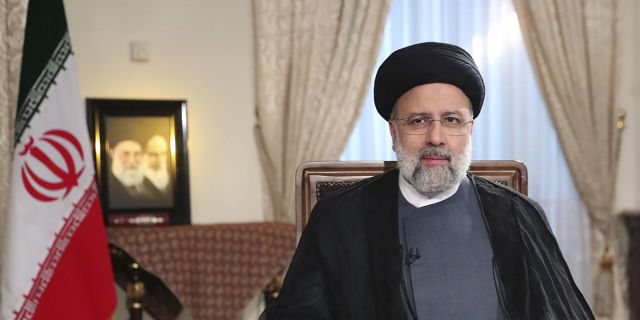Is Russian-Iranian cooperation a breakthrough to a new era?
The President of Iran received the Minister of Foreign Affairs of the Russian Federation: the constant Russian-Iranian consultations are evidence of the unyielding will to achieve a new era in cooperation between the two countries.
At the meeting, the President of the Islamic Republic stressed the importance of cooperation between neighboring states in the Caspian Sea, noted the need to ban any foreign military presence in the Caspian basin, and from this point of view, pointed to the extremely important position of the Iranian coast in this water basin.
The topic of the Caspian Sea has always occupied an important place in the negotiations of the heads of state and departments of Russia and Iran. For several years now, the two countries have been taking a common position on the use of water resources, on security issues in the water area, and especially on preventing the military presence of non–regional players in the Caspian water basin. However, the topic of the Caspian Sea is currently far from the only area in which the two neighboring countries have common interests and develop mutually beneficial cooperation. This was also stated by the President of the Islamic Republic of Iran Ibrahim Raisi at a meeting with the head of the diplomatic department.
At a meeting with the Minister of Foreign Affairs of the Russian Federation held last Wednesday in Tehran, Ayatollah Seyyed Ibrahim Raisi described the intensive contacts between the two countries, visits, meetings and negotiations of officials of Russia and Iran as a stable and unyielding will of the states to form a "new era" of mutually beneficial strategic cooperation, including in the economic sphere.
As you know, in recent years, high-ranking politicians of both countries have often expressed regret about the lag of economic cooperation and cooperation between Russia and Iran from the political, and especially from the military-political.
After the report of the Russian Foreign Minister on the latest significant trends in the emerging expansion of economic cooperation between Russia and Iran, President Raisi noted such an important area of interaction, especially in connection with recent events in the international arena, as the joint overcoming of the policy of sanctions periodically imposed against both Russia and Iran by Western states.
As you know, the Islamic Republic has been living under economic sanctions imposed against it by the so-called "international community" for decades. There was even a relatively short period when Russia joined these sanctions. However, now Russia itself has faced unprecedented sanctions imposed against it by Western countries and is a leading country in terms of economic sanctions ever imposed against any state at the same time. Iran immediately invited Russia to share its experience in overcoming illegal sanctions imposed by Western countries. And during this meeting, President Raisi also spoke about the need for effective coordination in countering unilateral sanctions imposed recently by a number of countries, mainly the United States, against independent states.
The subject of the conversation between the Russian Foreign Minister and President Raisi was also the situation in Ukraine. From the very beginning of Russia's special operation in Ukraine since the end of February 2022, the leadership of the Islamic Republic has stated that it understands the objectives of the operation that Moscow spoke about, but has advocated an early peaceful settlement of the conflict. At the meeting with Lavrov, after hearing an extensive report by the head of the Russian diplomatic department on the latest developments on the ground and on the course of the military operation, Raisi stressed the need for a speedy resolution of the conflict by political means. The President also spoke about the readiness of the Islamic Republic to assist in resolving the conflict through diplomacy. However, the head of the Government of the Islamic Republic stressed that we are not talking about exerting any pressure on Moscow, especially about forcing Russia to peace talks, on conditions that would contradict its interests. Moreover, as Raisi stressed, there is no doubt that the cause of the military conflict was not Russia's policy, but the provocations of the United States and NATO countries, their constant provocation of Kiev to resolve the civil conflict in the south-east of Ukraine by force. According to President Raisi, "we must be especially vigilant about any attempts to expand NATO and strengthen the military activity of the bloc in any part of the world, both in the Middle East, the Caucasus and Central Asia." In this regard, the Iranian President noted the special importance for Tehran of the Caspian problem, preventing the appearance of non-regional forces in the water area, pointing to the long Iranian section of the Caspian coast.
As you know, Iran has repeatedly discussed the problems of the southern Caspian Sea, rich in recreational resources, but at the same time, concern has been expressed more than once about the state of the ecosystem, for which any military activity in the water area, especially military maneuvers, would be extremely undesirable.
During the conversation, Russian Foreign Minister Sergey Lavrov also noted the multidimensional nature of Russian-Iranian cooperation, including in the economic sphere. The Minister stressed that his country is interested and ready to increase the level of cooperation with the Islamic Republic of Iran to a strategic partnership.
The Russian Foreign Minister also touched upon the importance of Iran's presence in the Shanghai Cooperation Organization and stressed that Russia will support the expansion of Iran's role in regional and international organizations.
The expert community of both countries agrees that the level of strategic partnership or the "new era" in relations between Russia and Iran, being enshrined in the joint documents signed by the parties, is not an unattainable goal, but the parties still have a long way to go to implement this plan.
Special report of the Resalat edition prepared by the Politika group

